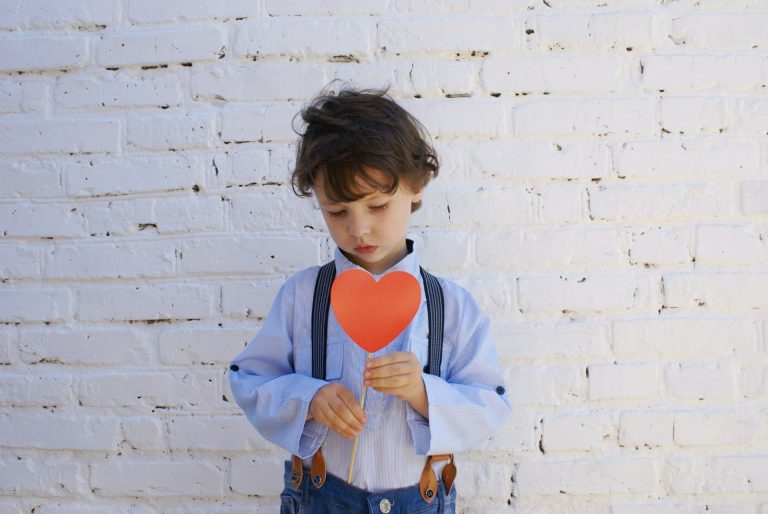Relationship Conflict - Is it such a problem?
It’s a fair question. If relationship conflict is so natural, why should you be worried about it in your relationship?
The answer is simple: When conflicts are consistently and persistently ignored and unexamined, they invariably lead to resentment or emotional disconnection – or both.
So, how do you recognise the signs of a conflict that has the potential to cause damage in your relationship and what do you do about it? Here are my top five warning signs, followed by my top five strategies. Keep these in front of mind, and apply them to your significant relationships, and you will be a Conflict Creative, not a Conflict Casualty.
Relationship Conflict Warning Sign #1 - Repetition
Relationship conflict is always an opportunity to learn about ourselves and our partners in conflict. If we don’t take up the invitation then we often find ourselves repeating the same arguments over and over again, without any sign of resolution. This is a common experience for couples and families and after a while it wears both parties down.
When we notice that we are having the same argument over and over, it’s a chance to stop and consciously do something different.
But taking a new approach to the way we manage conflict takes commitment and emotional courage, and a willingness to try and understand the emotional injuries which often underpin our conflict patterns today.

Conflict is an opportunity to learn to love our partner better over time.
Dr. Julie Gottman
Relationship Conflict Warning Sign #2 - Escalation
Often the needs we are trying to have met through our conflicts are far more fundamental than the surface content would suggest. When we fail to stop and try to identify what is really going on, our repeated failures to find resolution can lead one or both parties into an escalation of frustration.
If not checked, this frustration can give rise to disrespectful language and behaviours. Taking time out before a conflict descends into words and actions that cannot be undone is the right choice. But we must use that time out to de-escalate and commit to coming back to the argument with a respectful and constructive attitude.

Relationship Conflict Warning Sign #3 - Blaming
At the root of a defensive and blaming stance is generally an unwillingness to take responsibility for our own part in the conflict.
The emotional injuries which give rise to our problematic relationship conflict patterns are often deeply seeded. These frequently relate to the challenges, and often traumas, we have historically experienced in trying to build and maintain emotional attachments.
A basic understanding of attachment theory can be useful in understanding how this has informed our own conflict styles.
It takes emotional courage to face our historical emotional injuries, but without doing so, we inadvertently take the associated pain and grief into our present and future relationships.

The most functional way to regulate difficult emotions in a love relationship is to share them.
Sue Johnson
Relationship Conflict Warning Sign #4 - Disconnection
Only a fool would keep on going back into the ring, only to end each round bruised and dazed. Eventually even the toughest fighter will throw in the towel.
This is what happens in relationships where problem conflict is not addressed.
Sometimes this will mean physical separation, but often the result is a separation under the same roof, where one or both parties check out emotionally, choosing to maintain an emotional distance which they hope will put them out of reach of pain and turmoil which has left them punch-drunk and exhausted.

Relationship Conflict Warning Sign #5 - Listen To Your Gut
How often have you walked away from an argument with your partner or family member and simply felt crap? It might be that you felt strongly about your argument, but didn’t feel you managed to express it adequately. Or it might be that you felt you just weren’t listen to. Perhaps you didn’t feel comfortable with your own behaviour, recognising that it wasn’t a representation of the person you want to be in the relationship.
Whatever the reason, it’s not nice to sit with yucky feelings in our gut and so our common response is to push those feelings down or rationalise them away. In fact, there is much to be gained in doing just the opposite and there is much to be learned from listening to our gut and trying to understand what it is trying to teach us.
Don't Give Up Too Early
It is important to acknowledge that some people find themselves in relationships with partners whose inability to take responsibility for their own emotional injuries finds them inflicting violence and abuse upon their intimate partners and family members.
Recognising the right time to leave an unhealthy relationship will come at different times for different people and support agencies such as DVConnect are there to assist people to leave, when that time has come.
There are also situations where mutually respectful partners end up separating because the way forward seems too difficult to navigate, or they simply don’t know where to turn for support. In those situations the support of a Relationship Coach or Counsellor can be the thing that helps you finally chart a path forward, transforming problem relationship conflict into deeper connection and a more fulfilling relationship.
From Relationship Conflict to Deeper Connection (My 5 Top Tips)
Learning how to use relationship conflict to leverage a deeper connection with a partner or family member is not rocket science, but it does take consistent practice, in order to transform deeply entrenched habits and patterns.
You may like to check out my other related blogpost, The 9 Rs Of Relationship Conflict First Aid.
If you’re based in Brisbane, you may also be interested in attending one of our half-day intensive workshops, to help fast-track your own relationship conflict transformation.
In the meantime, here are my top 5 tips for taking charge of your relationship conflict and moving towards a healthier, happier relationship right now:
- Don’t bottle up – identify difficult feelings and practice sharing them
- Sit with the feeling – As you build your tolerance for difficult feelings you will be less likely to take them out on the ones closest to you
- ‘I’ Statements – Starting with ‘I’, rather than you, promotes accountability
- Let go control – You will never make your partner see things as you do, and trying will create frustration for you both
- Time out – Instead of escalating, walk away, breathe, de-escalate, and come back when you are both ready




